Science Salon
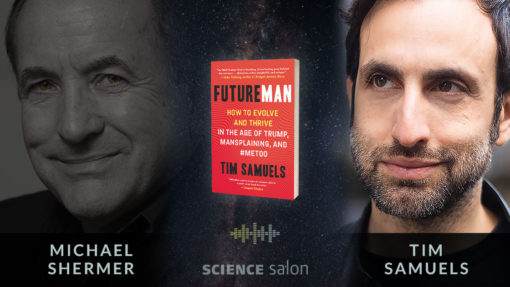
If ever there was an urgent need for a frank understanding of what’s going on with men, it is now. Male rage and frustration have driven resurgent populism, mass shootings, and epidemics of addiction and violence. Powerful men who have abused their positions for decades have been and are being #MeToo-outed and dismissed. The patriarchy, that solid bedrock of male power for thousands of years, seems to be crumbling…
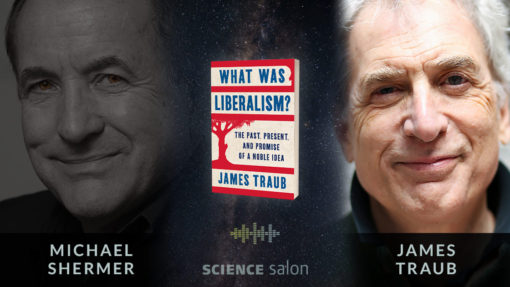
Shermer and Traub discuss: the changing meaning of “liberalism” • why the first liberals were deeply skeptical of majority rule • how liberalism become the national creed of the most powerful country in the world • Donald Trump as the first American president to regard liberal values with open contempt • identity politics • political correctness • what a potential future for liberalism would look like.
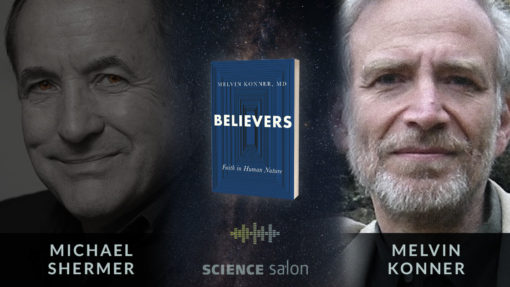
Shermer and Konner discuss: Konner’s experience living among hunter-gatherers • how hunter-gatherers conceive of religion vs. modern peoples • the “Big Gods” theory of religion • the “God Module” • why faith is not for everyone • the rise of the nones, but why religion will never completely die out • the upside of religion, and more…
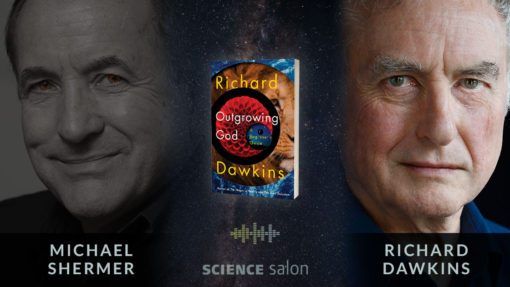
Richard Dawkins explains how the natural world arose without a designer — the improbability and beauty of the “bottom-up programming” that engineers an embryo or a flock of starlings — and challenges head-on some of the most basic assumptions made by the world’s religions.
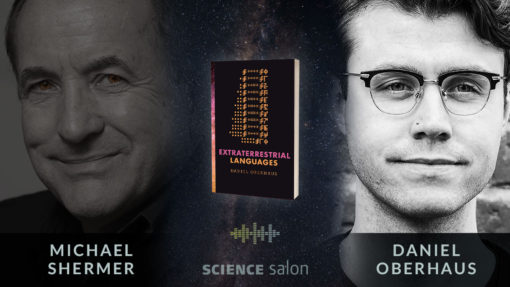
Exploring Earthlings’ various attempts to reach out to non-Earthlings over the centuries, Daniel Oberhaus poses some not entirely answerable questions. Is there not only a universal grammar (as Noam Chomsky has posited), but also a grammar of the universe? If we send a message into space, will extraterrestrial beings receive it? Will they understand? What languages will they (and we) speak? If we can’t even communicate with non-human mammals and primates, how are we going to communicate with sentient alien…
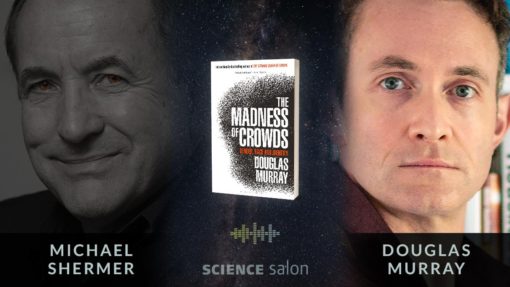
In Science Salon # 87 Michael Shermer speaks with Douglas Murray about his new book The Madness of Crowds on sexuality, gender, technology and race playing out in our workplaces, universities, schools and homes in the names of social justice, identity politics and intersectionality.
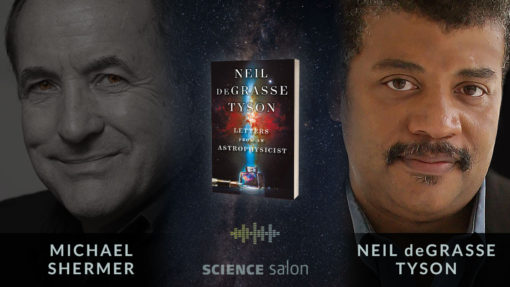
In Science Salon # 86, Michael Shermer speaks with Neil deGrasse Tyson about his latest book Letters from an Astrophysicist. In this discussion of his hand-picked collection of 101 letters, we go behind the scenes of his public fame by revealing his correspondence with people across the globe who have sought him out in search of answers.
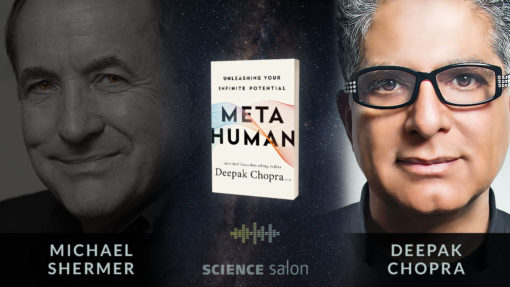
In Science Salon # 85 Michael Shermer and Deepak Chopra make an attempt at mutual understanding through the careful unpacking of what Deepak means when he talks about the subject-object split, the impermanence of the self, nondualism, the mind-body problem, the nature of consciousness, and the nature of reality.
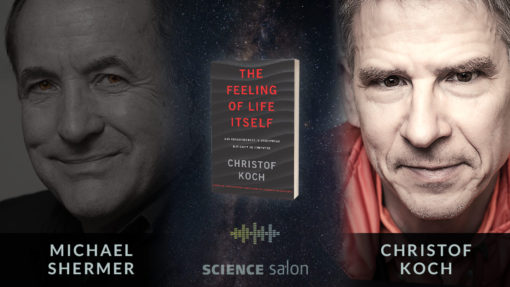
In this fascinating discussion of the hard problem of consciousness — that is, explaining how the feeling or experience of something can arise from neural activity — neuroscientists Christof Koch argues that consciousness is the feeling of being alive, not a type of computation or a clever hack. Consciousness is experience. Consciousness is The Feeling of Life Itself.
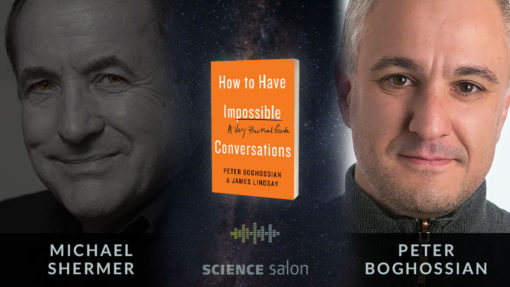
In our current political climate, it seems impossible to have a reasonable conversation with anyone who has a different opinion. Everyone seems to be on a hair trigger. This conversation is a guide to straightforward, practical, conversational techniques necessary for every successful conversation — whether the issue is climate change, religious faith, gender identity, race, poverty, immigration, or gun control.
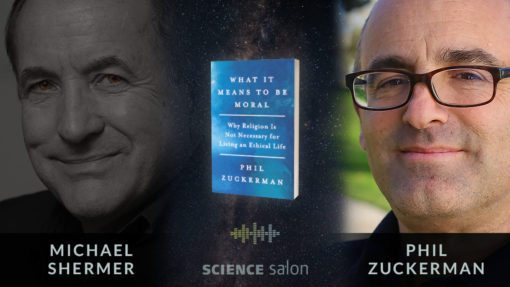
By deconstructing religious arguments for God-based morality and guiding readers through the premises and promises of secular morality, Zuckerman argues that the major challenges facing the world today―from climate change and growing inequality to religious support for unethical political policies to gun violence and terrorism―are best approached from a nonreligious ethical framework.
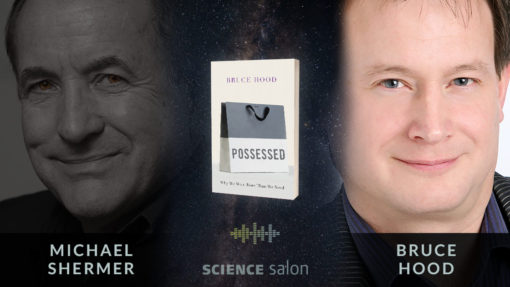
Psychologist Bruce Hood explains why our uniquely human preoccupation with ownership governs our behavior, even when it is often irrational, and destructive. Possessed is the first book to explore how ownership has us enthralled in relentless pursuit of a false happiness, with damaging consequences for society and the planet — and how we can stop buying into it.
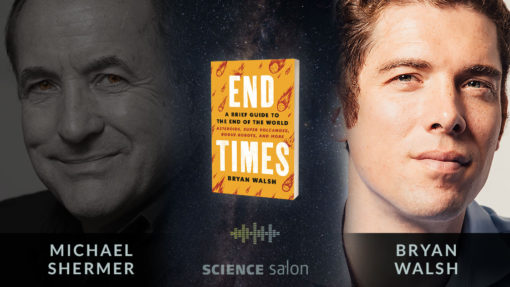
In Science Salon # 80, Michael Shermer speaks with Bryan Walsh about his brand new book End Times in which he provides a stunning panoramic view of the most catastrophic threats to the human race.
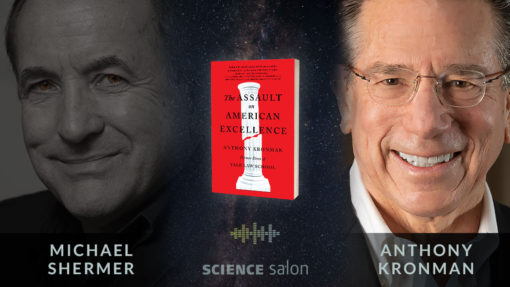
The former dean of Yale Law School argues that the feverish egalitarianism gripping college campuses today is out of place at institutions whose job is to prepare citizens to live in a vibrant democracy. Where many see only the suppression of free speech, the babying of students, and the drive to bury the imperfect parts of our history, Kronman recognizes in these on-campus clashes a threat to our democracy.
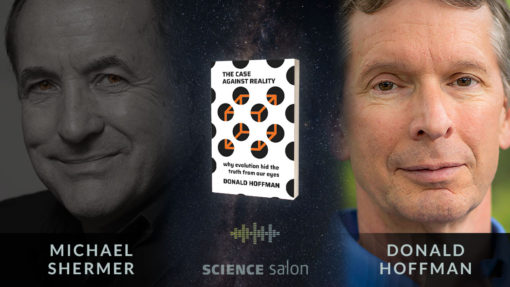
Cognitive scientist Dr. Donald Hoffman challenges the leading scientific theories that claim that our senses report back objective reality. How can it be possible that the world we see is not objective reality? And how can our senses be useful if they are not communicating the truth? Hoffman argues that while we should take our perceptions seriously, we should not take them literally.
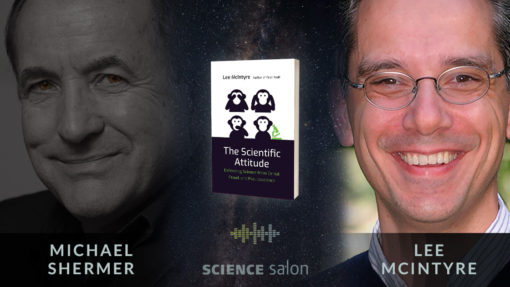
In Science Salon # 77, an engaging conversation on the nature of science, Dr. McIntyre and Dr. Shermer get deep into the weeds of where to draw the line between science and pseudoscience.
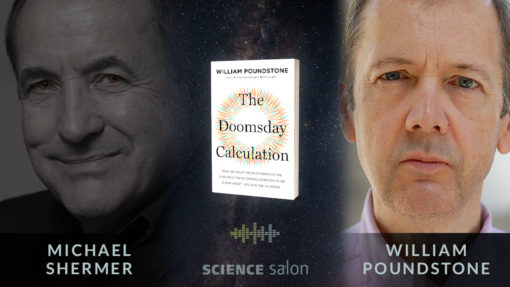
When will the world end? How likely is it that intelligent extraterrestrial life exists? Are we living in a simulation like the Matrix? Is our universe but one in a multiverse? How does Warren Buffett continue to beat the stock market? How much longer will your romance last? In this wide ranging conversation with Michael Shermer, science writer William Poundstone answers these questions, and more.
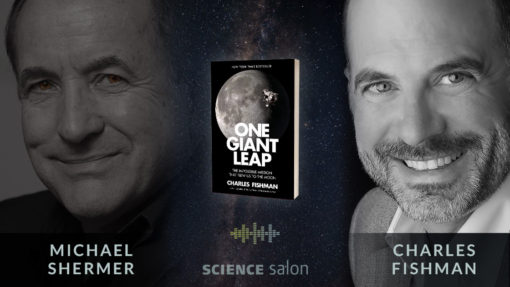
On this July 16th, the 50th anniversary of Apollo 11, Michael Shermer speaks with veteran space reporter Charles Fishman who has been writing about NASA and the space program for more than 30 years.
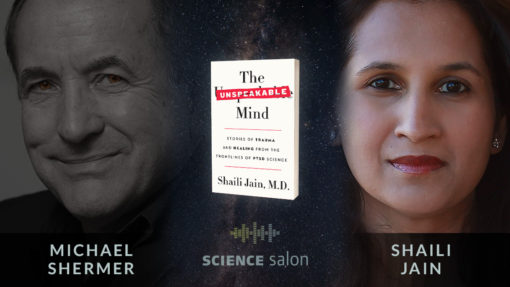
Shermer speaks with practicing psychiatrist and trauma scientist at the National Center for PTSD Shaili Jain, M.D about her new book in which shines a long-overdue light on the Post-Traumatic Stress Disorder (PTSD) epidemic affecting today’s fractured world.
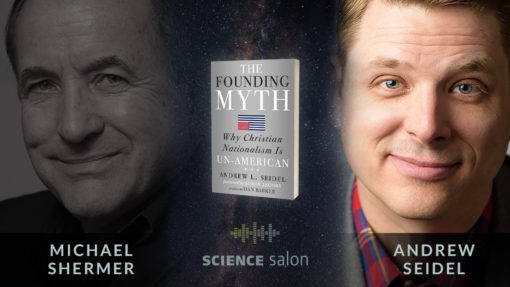
Was America founded on Judeo-Christian principles? Are the Ten Commandments the basis for American law? What, exactly, was the role of religion in America’s founding? Shermer speaks with constitutional attorney and scholar at the Freedom from Religion Foundation (FFRF) Andrew L. Seidel who argues that America was not built on the Bible and that Christian nationalism is, in fact, un-American.
← PREVIOUS
NEXT →




























